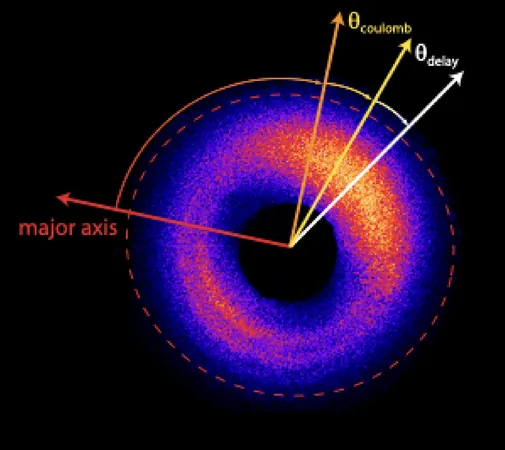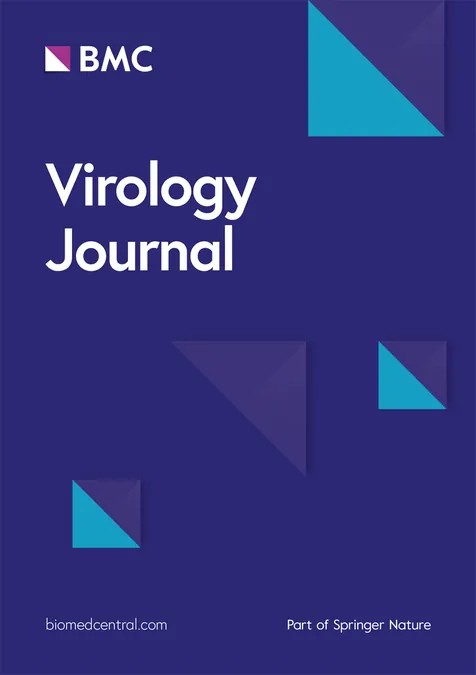
Revolutionary Phase-Resolved Attoclock Achieves Unprecedented Measurement of Electron Tunneling Time
2025-06-06
Author: Yu
Unlocking the Secrets of Electron Tunneling
In the realm of quantum mechanics, a stunning phenomenon known as quantum tunneling allows electrons to breach energy barriers they normally can't cross—especially when subjected to a powerful laser field. This intriguing behavior has captured the attention of physicists worldwide, leading to a deep dive into the precise timing of this process.
The Quest for Precision in Measurement
Historically, accurately measuring how long an electron spends in a tunneling barrier has been a significant challenge. That's where attoclocks—advanced experimental tools designed for ultrafast electron dynamics—come into play. These instruments promise remarkable precision, capable of timing events down to a few attoseconds (10⁻¹⁸ seconds). Yet, despite two decades of research, the exact measurements remained elusive.
A Breakthrough at Wayne State and Sorbonne Universities
In a groundbreaking paper published in Physical Review Letters, a team from Wayne State University and Sorbonne University has unveiled an innovative attoclock technique that harnesses the carrier-envelope phase (CEP). This technique enhances accuracy by tracking the precise moment electrons tunnel through barriers, providing clarity where previous methods fell short.
Senior author Wen Li stated, "Attoclock offers unprecedented time resolution and is perfect for measuring tunneling time, yet this has remained a mystery until now." The researchers set out to refine this technology, moving away from the conventional reliance on elliptically polarized light to utilize the unique benefits of circularly polarized light.
New Findings and Future Implications
The results from their experimental data hint that the tunneling durations are impressively brief, while the angles of deflection are significantly influenced by ionization potentials. This discovery could have huge implications for understanding ultrafast quantum phenomena.
Li emphasizes the implications of their findings: "The measured deflection angles are intricately related to the ionization potentials of the species involved, challenging prior assumptions about tunneling delays. We're also investigating these minuscule delays and considering the need for what might be called a 'zeptoclock'—a new generation of attoclock technology that could push the boundaries of precision even further."
Towards Real-Time Chemistry Studies
The robust nature of this new phase-resolved attoclock holds exciting prospects for future research. Plans are already underway to evolve this technique into a spectroscopic method, potentially allowing scientists to observe chemical processes as they happen in real time.
With each advancement, the mysteries of quantum mechanics inch closer to being unraveled, paving the way for new discoveries in both physics and chemistry.




 Brasil (PT)
Brasil (PT)
 Canada (EN)
Canada (EN)
 Chile (ES)
Chile (ES)
 Česko (CS)
Česko (CS)
 대한민국 (KO)
대한민국 (KO)
 España (ES)
España (ES)
 France (FR)
France (FR)
 Hong Kong (EN)
Hong Kong (EN)
 Italia (IT)
Italia (IT)
 日本 (JA)
日本 (JA)
 Magyarország (HU)
Magyarország (HU)
 Norge (NO)
Norge (NO)
 Polska (PL)
Polska (PL)
 Schweiz (DE)
Schweiz (DE)
 Singapore (EN)
Singapore (EN)
 Sverige (SV)
Sverige (SV)
 Suomi (FI)
Suomi (FI)
 Türkiye (TR)
Türkiye (TR)
 الإمارات العربية المتحدة (AR)
الإمارات العربية المتحدة (AR)